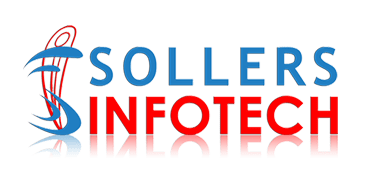The Future of Digital Healthcare Software
The future of digital healthcare is expected to bring significant advancements in healthcare software, solutions, and automation. Here are some key aspects and trends that may shape the future of digital healthcare:
- Artificial Intelligence (AI) and Machine Learning (ML): AI and ML technologies have the potential to revolutionize healthcare software by enabling predictive analytics, personalized medicine, and improved diagnostics. Healthcare software with AI-powered algorithms can analyze vast amounts of patient data to identify patterns, predict outcomes, and assist in clinical decision-making.
- Remote Patient Monitoring: Healthcare solutions will increasingly incorporate remote patient monitoring devices and wearables. These technologies allow healthcare providers to collect real-time patient data, monitor chronic conditions remotely, and intervene proactively to prevent complications.
- Telemedicine and Virtual Care: Healthcare software like Telemedicine and virtual care will continue to evolve, enabling patients to receive healthcare services remotely. Enhanced video conferencing capabilities, secure messaging platforms, and virtual health apps will facilitate remote consultations, follow-ups, and home-based care.
- Electronic Health Records (EHR) Enhancements: Healthcare solutions like EHR systems will become more sophisticated and interoperable, enabling seamless data exchange among healthcare providers. EHRs will support better care coordination, population health management, and enhanced patient engagement through features like patient portals and access to health information.
- Health Data Analytics: Advanced analytics and big data techniques will enable healthcare organizations to derive insights from vast amounts of healthcare data. Analytics will support population health management, identify disease trends, optimize resource allocation, and improve clinical outcomes.
- Blockchain Technology: Blockchain will find applications in healthcare solutions to enhance data security, interoperability, and patient consent management. It can enable secure sharing of sensitive patient information, facilitate data exchange between different healthcare entities, and support the integrity of medical records.
- Robotic Process Automation (RPA) and Workflow Automation: Healthcare Automation will streamline administrative tasks, reduce manual errors, and improve efficiency. Using RPA in healthcare automation space will automate repetitive processes, such as claims processing and billing, while workflow automation will optimize care pathways and streamline clinical workflows.
- Personalized Medicine and Genomics: Advances in genomics and precision medicine will enable more personalized treatment approaches. Healthcare software will integrate genetic information, support tailored treatment plans, and facilitate targeted therapies based on an individual’s genetic makeup.
- Cybersecurity and Data Privacy: As digital healthcare expands, cybersecurity and data privacy will be critical concerns. Healthcare software will need to incorporate robust security measures to protect patient data from breaches and ensure compliance with privacy regulations.
- Patient Engagement and Self-Care: Healthcare solutions will increasingly focus on empowering patients and promoting self-care. Patient engagement platforms, mobile apps, and health tracking tools will help individuals actively participate in managing their health and well-being.
The future of digital healthcare holds great promise for improved patient outcomes, enhanced efficiency, and greater access to care. However, ethical considerations, regulatory frameworks, and equitable access to healthcare technology will be essential aspects to address as the digital healthcare landscape evolves.
We at Sollers Infotech, have been developing software that caters to the needs of digital healthcare and have proved to be quite beneficial in this regard. Contact Us to provide healthcare solutions to your needs!



